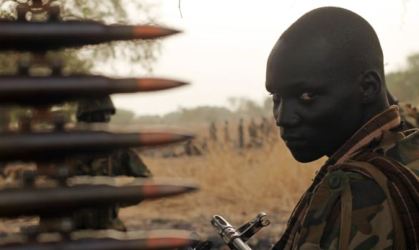Lawful arms trade worth US$8.5bn per annum: Small Arms Survey
By Julius N. Uma
August 28, 2012 (JUBA) – The value of authorised international transfers of small arms, light weapons, their parts, accessories, and ammunition is at least US$8.5 billion annually, investigations by the Swiss-based Small Arms Survey (SAS) has revealed.

According to SAS part of the increase is due to increased spending by US civilians on small arms and their ammunition, and large-scale government purchases of military firearms and light weapons for international and national armed forces involved in fighting in Iraq and Afghanistan.
Better information and more nuanced research methodologies also played a role in refining the estimate.
“While state transparency on small arms transfers to and from Europe and North America has been relatively strong, it has lagged in Africa, Asia, and the Middle East,” said SAS managing director, Eric Berman.
“Improved transparency from important exporters, such as China and the Russian Federation, as well as states that re-export surplus weapons, would improve our understanding of the sources and means through which authorized arms transfers fuel the illicit trade,” he added.
According to an Amnesty report published in June, “A ready flow of military weapons from China, Sudan and Ukraine has triggered indiscriminate attacks by both the South Sudanese Armed Forces and armed opposition groups,“
In January the government of South Sudan welcomed news that the US had lifted its embargo making them eligible to buy US arms.
EU sanctions have not yet been lifted, and as well as military hardware, prohibit the sale of “technical assistance, brokering services and other military-related services / financing or financial assistance related to military activities for use in South Sudan”.
These sanctions were amended with the advent of it the nation’s independence in 2011 to permit the sale of non-lethal military equipment.
The SAS report, also notes that lack of transparency in state reporting of details involved in arms trade, among both large and small arms importers and exporters, poses a huge threat to authorised trade in arms.
It also includes the initial findings of a multi-year project to examine illicit small arms and light weapons, focusing on Afghanistan, Iraq, and Somalia, where it reportedly discovered the use of older-generation weapons among non-state armed groups.
“To a great extent, the legacy of state collapse and plundered stockpiles, rather than newer weapon models, appears to determine the arsenals of today’s insurgents,” it observed, while citing the “significant” percentage of Iranian weapons seized from insurgents in Iraq.
(ST)

